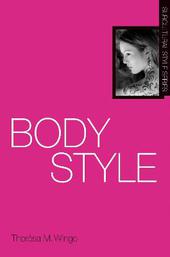
|
Body Style
Hardback
Main Details
| Title |
Body Style
|
| Authors and Contributors |
By (author) Theresa M. Winge
|
| Series | Subcultural Style |
|---|
| Physical Properties |
| Format:Hardback | | Pages:160 | | Dimensions(mm): Height 234,Width 156 |
|
| Category/Genre | Body art and tattooing |
|---|
| ISBN/Barcode |
9781847880017
|
| Classifications | Dewey:306.4613 |
|---|
| Audience | | Tertiary Education (US: College) | | Professional & Vocational | |
|---|
| Illustrations |
30 bw illus
|
|
Publishing Details |
| Publisher |
Bloomsbury Publishing PLC
|
| Imprint |
Berg Publishers
|
| Publication Date |
1 June 2012 |
| Publication Country |
United Kingdom
|
Description
Body Style reveals the subcultural body as a site for understanding subcultural identity, resistance, agency, and fashion. Analyzed, theorized, politicized, and sensationalized, the subcultural body functions as a framework where individuals build a sense of self and subcultural identity. Drawing on specific subcultural examples and interviews with members, Body Style explores the subcultural body and its style within global culture. Body Style is the result of over twelve years of research examining these intersections within specific urban subcultures, including Urban Tribals, Modern Primitives, Punks, Cybers, Industrials, Skaters, and others. Divided into three main sections on subcultural body history, subcultural body identity and subcultural body styles, this book will be of particular interest to students of dress and fashion as well as those coming to subculture from sociology and cultural studies.
Author Biography
Theresa M. Winge is an assistant professor of fashion design and theory at Indiana University, Bloomington, Indiana, USA. In recent years, Winge's research has focused on the socio-cultural aspects of Modern Primitive body modifications and Japanese Lolitas.
ReviewsBody Style is a welcome project, at once accessible to students and the general public and relevant to professional anthropologists... We welcome more attention to the cultural variations within Western societies and to the complex and controversial interplay between Western societies and (at least imagined versions of) non-Western ones... The book gives us pause to think about the extremes to which people will go, and perhaps must go in the post-modern era, to make themselves. -- Jack David Eller * Anthropology Review Database *
|